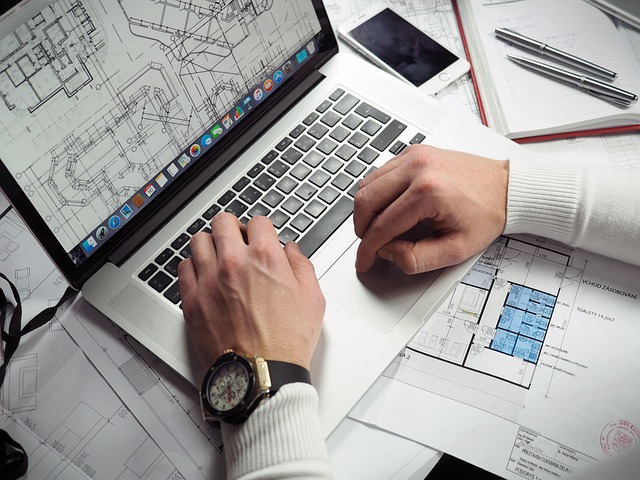Understanding Work-Life Balance
Achieving work-life balance is a concept that resonates deeply with many individuals today. It refers to the ability of individuals to maintain a healthy equilibrium between their professional life and personal life. For entrepreneurs, balancing these two aspects becomes even more critical. As they often wear multiple hats, the lines between work and home can easily blur. But fear not! By staying organized, you can navigate this tightrope with grace.
To truly appreciate what work-life balance means, it’s essential to look at its impact on mental health, productivity, and overall satisfaction. A chaotic work schedule can lead to stress, anxiety, and burnout, making it crucial for entrepreneurs to prioritize their time. When you manage your responsibilities effectively, you not only enhance your productivity but also make room for leisure activities, family time, and self-care, which are fundamental to well-being. Consequently, achieving work-life balance doesn’t merely improve your productivity; it also enriches your life as a whole.
Furthermore, work-life balance is not a one-time achievement. It demands ongoing adjustments and refinements. Life changes—whether they relate to family, health, or work—will affect your balance. Staying organized allows you to respond to these changes proactively. By implementing effective organizational habits, you can create a foundation that supports a flexible approach to maintaining balance throughout life’s ups and downs.
The Power of Staying Organized
Staying organized is a game-changer when it comes to achieving work-life balance. An organized life can significantly enhance productivity for entrepreneurs. When your workspace is tidy and your tasks are well-structured, you create an environment where you can concentrate without distractions. But organization goes beyond the physical space; it requires mental clarity and intentional planning.
One effective technique to stay organized is prioritizing tasks. By identifying your most important tasks each day, you can allocate your time more efficiently. Utilizing tools such as planners or digital apps can help keep everything on track. For instance, apps like Trello or Asana allow you to visually manage projects while decluttering your mind. When your workload feels manageable, you create room for personal time and hobbies, nurturing that important balance.
Additionally, establishing boundaries is vital. As an entrepreneur, you may feel the pressure to be constantly available. Setting specific work hours can keep your work from spilling into your personal life. By using scheduling tools, you can create a structured work schedule. This structure helps not only in productivity increase but also in setting aside sacred time for family, friends, and yourself. Realizing that your worth isn’t solely defined by your work is a crucial step toward achieving that coveted work-life balance.
Time Management Techniques
Time management is essential for entrepreneurs aiming to maintain work-life balance. The art of managing time efficiently involves selecting tasks strategically and allocating your energies where they matter most. One popular method is the Pomodoro Technique, where you focus intently for 25 minutes and then take a 5-minute break. It prevents fatigue and keeps your mind fresh.
Moreover, consider leveraging the Eisenhower Box—this tool helps you categorize tasks based on urgency and importance. Tasks that are both urgent and important take precedence, while those that are neither can often be delegated or eliminated. This framework ensures that your efforts focus on high-impact tasks, ultimately enhancing your productivity.
In addition, batch processing similar tasks can save time. For example, dedicate specific hours to respond to emails, make calls, or handle administrative tasks. This method reduces the distraction of task-switching and allows for sustained focus. Furthermore, share your schedule with your team to foster accountability and streamline communication. Transparency ensures we don’t overcommit, allowing for both work focus and personal free time.
Creating a Productive Workspace
Your workspace significantly affects your productivity and, by extension, your work-life balance. A cluttered environment can act as a significant distraction, pulling focus away from critical tasks. Begin with decluttering your workspace—remove items that aren’t necessary and keep only what contributes to your success. This not only fosters a pleasant working environment but also helps maintain a positive mindset.
Next, ensure your workspace is ergonomically designed. Whether working at home or in an office, prioritize your comfort. A comfortable chair, the right desk height, and optimal lighting can mitigate fatigue and enhance your efficiency. Plus, a well-arranged desk with everything you need at arm’s reach minimizes interruptions and maximizes productive intervals.
Don’t forget to personalize your workspace. Incorporating elements that inspire you can foster creativity and motivation. This could range from plants that add life to a space or photos of loved ones that create a sense of warmth. When you enjoy your workspace, you can easily merge productivity with a positive emotional experience, thereby ensuring a healthier work-life balance.
Leveraging Technology Wisely
For modern entrepreneurs, technology provides an abundance of resources to streamline both work tasks and personal life. However, technology can also become overwhelming. The key is leveraging it wisely. Begin by identifying which apps and tools genuinely contribute to your organizational goals. For instance, consider using calendar tools to schedule your week, setting reminders for important deadlines, or incorporating project management software to coordinate tasks across your team.
Stay disciplined about notifications. Social media alerts and constant emails can disrupt your concentration and inflate your to-do list unnecessarily. Set specific times to check emails and stick to them. If an app isn’t adding value, don’t hesitate to uninstall it; the fewer distractions you have, the more focused you can become on your substantial commitments.
Additionally, using automation tools can save you countless hours. Routine processes like invoicing or social media posting can often be automated, giving you back time for tasks that require your unique expertise or creativity. Balance is about not only work and play but also protecting your time by focusing on what will yield the highest returns.
Establishing Routines
Routines play a crucial role in achieving work-life balance, as they anchor your day and create predictability. By establishing morning and evening routines, you kick-start and wind down your day effectively. A morning routine might include review of your daily goals, a healthy breakfast, or even a short workout—these activities set a productive tone for your day.
Evening routines are equally essential. They signal to your brain that it’s time to switch gears. Engaging in relaxing activities, such as reading or reflecting on the day, can help you de-stress. This practice of mentally detaching from work can significantly improve your sleep and sharpen your focus for the next day.
Consider utilizing the “end of day review” approach. Take 10-15 minutes at the end of your workday to reflect on what you accomplished and what needs attention tomorrow. This routine can ease anxiety about what remains on your plate, allowing you to enjoy your evenings fully without lingering thoughts of work hanging over your head.
Final Thoughts on Balancing Life and Work
Ultimately, achieving work-life balance is about making deliberate choices that reflect your values and priorities. Staying organized forms the backbone of this essential balance. By implementing the strategies discussed—enhancing productivity, maintaining structure, and leveraging technology—you will create an environment that fosters both personal and professional satisfaction.
Remember, work-life balance is not a destination but a continuous journey. It requires flexibility and a willingness to make changes as your circumstances evolve. Building these habits now can make navigating future challenges far more manageable. Stay organized, be mindful of your time, and prioritize your well-being, and you will cultivate a rewarding balance that supports your professional ambitions while nurturing your personal life.
Frequently Asked Questions
- What are some effective ways to stay organized as an entrepreneur?
- Effective ways include using digital tools like task management apps, decluttering your workspace, and prioritizing your daily tasks. Setting specific times for checking emails also encourages focus.
- How can I improve my work-life balance?
- You can improve it by establishing clear boundaries between work and personal life. Use scheduling tools to manage tasks, incorporate self-care routines, and stay mindful of your workload.
- Why is organization so important for entrepreneurs?
- Organization enhances productivity, reduces stress, and allows entrepreneurs to focus on priority tasks. It helps in maintaining clarity and efficiency in busy schedules.
- What role does technology play in achieving work-life balance?
- Technology provides tools for task management, scheduling, and communication, allowing entrepreneurs to streamline processes and reduce time spent on redundant tasks. However, one must avoid distractions from excessive use.
- Can routines really help achieve better work-life balance?
- Yes, routines can create structure, making it easier to manage time and responsibilities. Establishing morning and evening routines can enhance productivity and allow better transitions between work and personal life.



